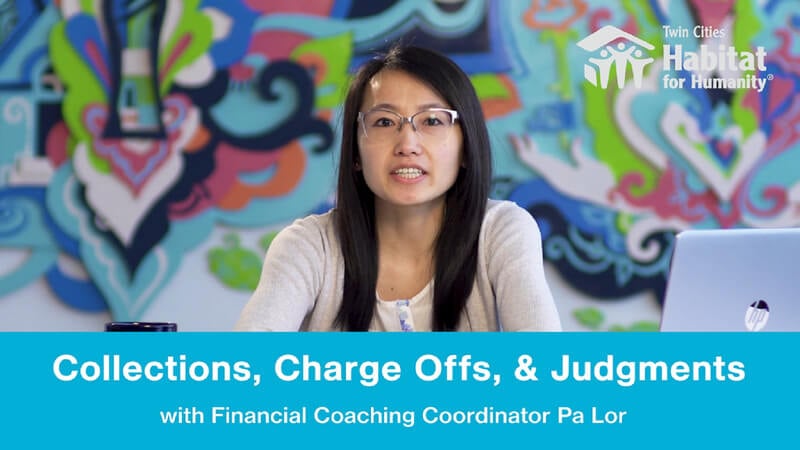Understanding Credit and Your Credit Report [VIDEO]
We continue to process the pain and hope of our nation’s uprising for racial justice amid a global health crisis. You can see ourrecent statements...
2 min read
 Twin Cities Habitat for Humanity
:
1:00 PM on March 9, 2020
Twin Cities Habitat for Humanity
:
1:00 PM on March 9, 2020
![Understanding Debt and How to Pay it Off Strategically [VIDEO]](https://www.tchabitat.org/hubfs/2020%20Blog%20Images/March/Understanding%20Debt%20-%20Featured.jpg)
If you’re a first-time homebuyer and you have debt, you need to understand the type of debt you have and how to pay it off strategically to be able to afford a house.
Lenders take all of your financial information into consideration when working with you to find the right mortgage rate. Typically, the better off you are financially, the lower your rate will be.Our Financial Coaching Coordinator, Pa Lor, explains in this video how to pay off your debt strategically so you can qualify for a mortgage:
Here is a shortlist of types of debt:
Depending on the type of debt you have, you can prioritize what to pay off immediately or what to pay diligently over time.
All debt can be categorized as either “Good” or “Bad” debt. Good debt is any debt towards an asset that appreciates over time, like a home. On the contrary, bad debt is for an asset that depreciates over time, like a car.
There are two popular methods for paying off debt: The Snowball Method and the Interest Method. Pa breaks them down like this:
You pay off the smallest balance account first and apply whatever payment you were making there to the next largest indebted account. For example, let’s say you have two credit card accounts:
With the Snowball Method, focus on paying off the lower balance account first (in this case, that’s Account B). If you’re paying $100 per month towards Account B and have paid off that balance, then put that $100 towards Account A. If you were previously paying $100 towards Account A per month, now you’re paying $200 per month with the additional $100 that you are no longer using to pay Account A.
This method is a great way to build confidence early on because you start seeing the number of indebted accounts decrease over time. You’re also maximizing and strategically applying your income towards debts.
For those that are more mathematically-driven, the Interest Method might be the right choice. Basically, the Interest Method suggests paying off the account with the highest interest rate first. By doing so, you reduce the amount of interest paid and can apply any savings towards additional debt with the next highest interest rate.
“It really comes down to knowing yourself, knowing what will work for you, knowing what will motivate you, and using that to figure out a game plan to tackle your debt,” says Pa.
Paying off your debt is the first step towards financial soundness, regardless of whether or not you’re buying a new home. Following these tips should get you started towards a debt-free life!
If you liked this video and want some more first-time homebuyer tips, subscribe to our YouTube channel!
Your gift unlocks bright futures! Donate now to create, preserve, and promote affordable homeownership in the Twin Cities.
![Understanding Credit and Your Credit Report [VIDEO]](https://www.tchabitat.org/hubfs/2020%20Blog%20Images/July/Credit%20Report%20-%20Featured%20Image.jpg)
We continue to process the pain and hope of our nation’s uprising for racial justice amid a global health crisis. You can see ourrecent statements...

We continue to process the pain and hope of our nation’s uprising for racial justice amid a global health crisis. You can see ourrecent statements...

Understanding key financial terms is essential for first-time homebuyers (and anyone else getting ready to borrow money from a lender). Knowing what...